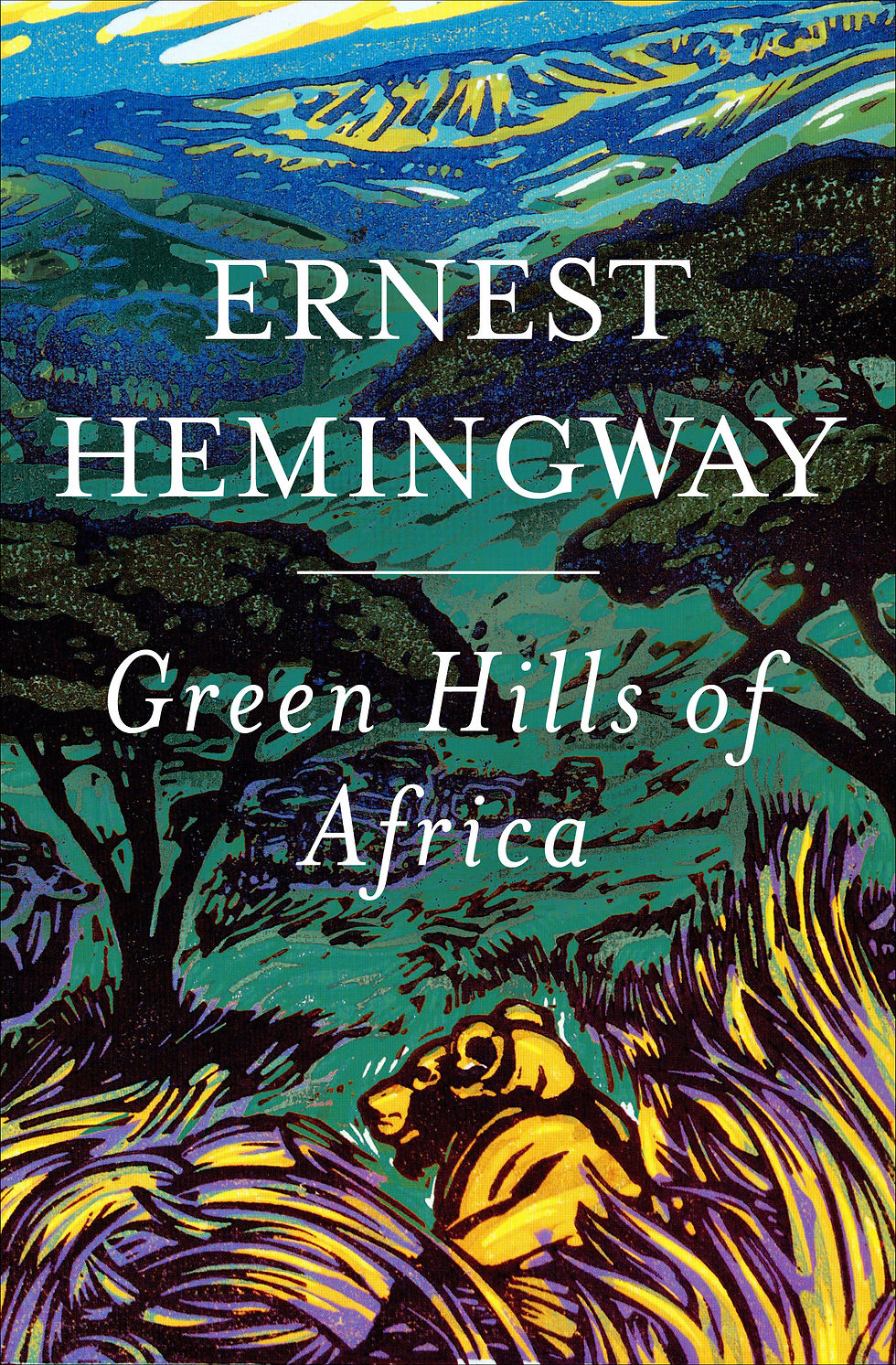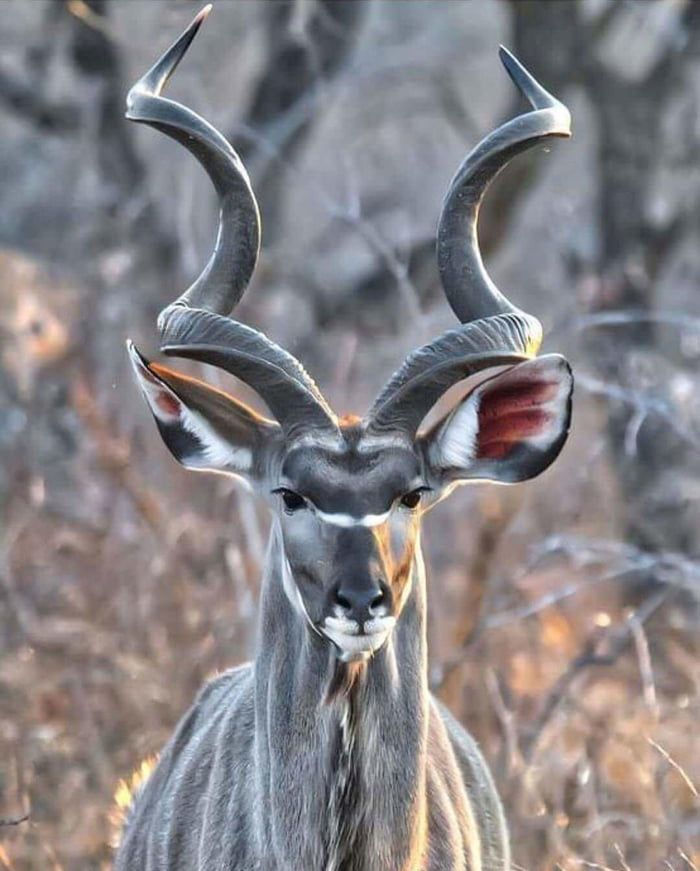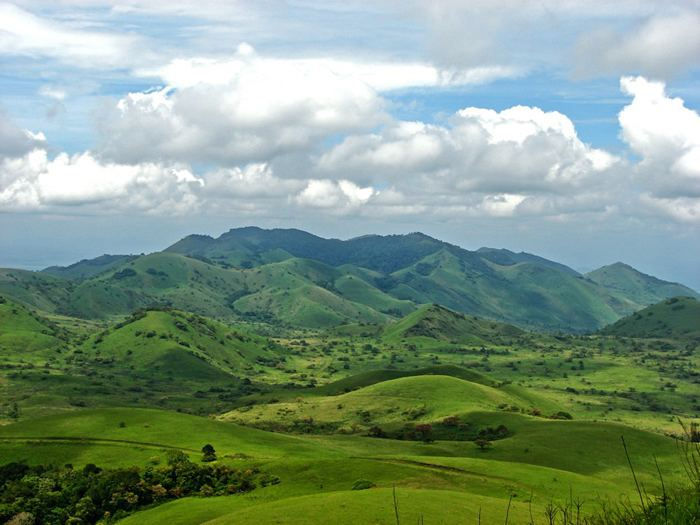"...he who makes a beast of himself gets rid of the pain of being a man."
~Dr. Johnson
Author: Ernest Hemingway
Genre: Biography, Travel literature
Originally Published: 1935

Synopsis:
Green Hills of Africa is Ernest Hemingway's lyrical journal of a month on safari in the great game country of Kenya, where he and his wife Pauline journeyed in December 1933. Hemingway's well-known interest in - and fascination with - big-game hunting is magnificently captured in this evocative account of his trip. It is an examination of the lure of the hunt and an impassioned portrait of the glory of the African landscape and of the beauty of a wilderness that was, even then, being threatened by the incursions of man.
This book holds a special place in my heart, as it sits on a delicate intersection of three very important things to me. First, that it is a product of one of my favorite authors and inspirations - The Great Hemingway. Second, that it is about a time he spent in Kenya, where I grew up and finally, that in this book, he gives excellent advice on writing and how to write properly, albeit through broken dialogue. This lethal trifecta induces me to conclude that this, at least for me personally, is Hemingway's best novel.
Oh what pleasant surprise when I found out that the great American novelist had undertaken a 10-week safari in Kenya - visiting Nairobi, Mombasa and Kenya. The 'green hills' he writes about are the Chyulu hills - verdant rolling hills with endless blue skies and gigantic clouds that give way to a splendid, lush, green landscape that blesses the eye with history and splendor. Through his hunting expedition, he converses with local guides about hunting, about writing, about animals, about life. Often times, Swahili words will jump at you like 'Ndio' (yes) and 'Hapanna' (No), and in a heartwarming way, I smile as I remember my childhood learning and eventually excelling in the local tongue.

Hemingway's vigorous, to the point descriptors of the animals, the local Maasai people, the environment, truly make you feel as if you are standing in those sun-kissed plains. When Hemingway talks about the 'good smell of Africa' my nose fills with those pleasant odors. When he paints the colors of various game like Kudu and Sable and give the measures and exact number of curves in their horns, I see those animals walking before me in grace, in splendor. Through Hemingway's fast prose, I am teleported back to my old home, where 18 years of my life whiled away like a cool Kenyan breeze across the African Savannah.
When Hemingway says, 'I could not believe we had come to any such wonderful country. It was a country to wake from, happy to have had the dream… ,' I believe it, I see it. Because he shows it to you word by word. The hunting in the book is described with the precise exactitude of a professional hunter. The grit and determination to track game across seemingly endless plains, up and down hills, through thick and thin brush, and finally the shot, the success, the joy of sharing a beer and meat after a successful hunt, these are all something I wish to experience in the future. However, one lesson I can learn form Hemingway is, don't get in those rickety bush planes! Hemingway was the unfortunate sufferer of two consecutive plane crashes on his second visit to Africa - the second one was so bad many in the West thought him dead and had written his obituaries when he suddenly showed up, alive and kicking! 'My God,' they must have thought, 'this man doesn’t die!'

Finally, the advice he gives for writers was something I felt very valuable. It was like discovering small diamonds in an already large pile of gold. With brilliantly witty comments like:
"...what harms a writer? 'Politics, women, drink, money and ambition. And a lack of politics, women, drink, money and ambition,' I said profoundly."
And genuine advice like:
"There must be talent, much talent. Talent as Kipling had. Then there must be discipline. The discipline of Flaubert. Then there must be the conception as unchanging as the standard meter in Paris. To avoid faking."
Any writer, who is serious about his craft, should give this book a chance. Sure it doesn’t have the power of a Nobel Prize behind it like 'The Old Man and The Sea', or the profundity of a war novel like 'A Farewell to Arms', but it carries it's own beauty. In those Green hills of Africa, Hemingway found a deep connection with a land he was only visiting, where many who have lived there for years perhaps fail to see. He shows what it's really like to be in the thick of it, both literally and metophorically. And if you don't read this book, and you don't get it, well, as we say in Kenya - Hakuna Matata!
Comments